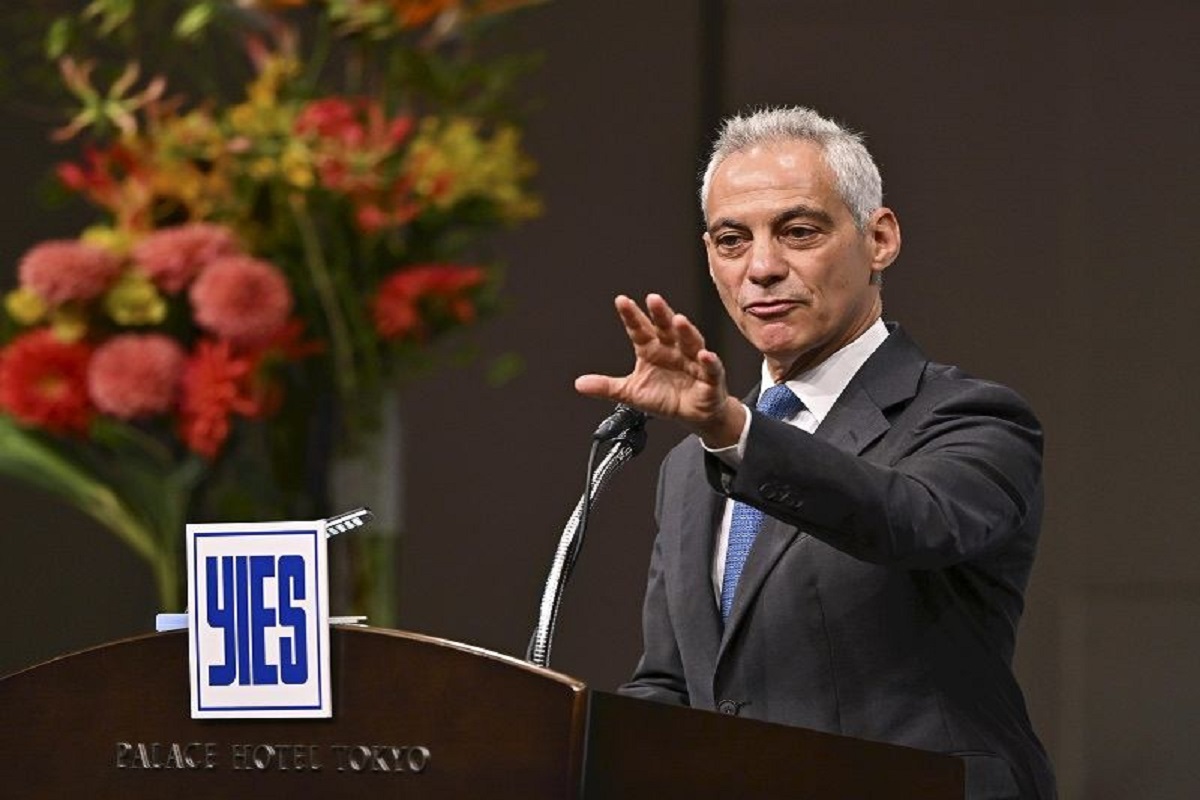The Japan-U.S. alliance has entered an era of “projection” into the Indo-Pacific from one focused on “protection” of the partnership, U.S. Ambassador to Japan Rahm Emanuel said at a Yomiuri International Economic Society (YIES) lecture in Tokyo on Friday.
“While the last 60 years between the United States and Japan have been defined by what I call ‘alliance protection,’ we are now entering an era and period of time of ‘alliance projection’ into the Indo Pacific,” Emanuel said in the lecture titled the “Future of Our Alliance,” which was held at the Palace Hotel in Chiyoda Ward.
Advertisement
Emanuel emphasized the strength of the alliance, saying that the strategic visions of the two countries have never been so aligned.
The U.S. ambassador hailed Japan for considering increasing its defense spending to 2% of the nation’s gross domestic product.
“Early discussions of counterstrike and counteroffensive as part of the deterrence level is important,” he said.
He also expressed his support for Japan’s intention to revise three key security documents, including the National Security Strategy, that Tokyo plans to carry out later this year.
Regarding China, Emanuel criticized the country by name, saying that Beijing has violated rules by actively engaging in intellectual property theft and economic coercion, among other things. He said he would not call such a country “a friend” and stressed the need to strengthen economic security against Beijing.
Emanuel also stated concerns about China’s missile launches into waters near Taiwan, including Japan’s exclusive economic zone, in response to U.S. House Speaker Nancy Pelosi’s visit to Taiwan in August.
Citing China’s zero-COVID policy, Emanuel said Chinese President Xi Jinping has brought many problems such as economic stagnation upon himself, saying they bear “Xi’s thumbprint.”
Emanuel also referred to the growing unity of the North Atlantic Treaty Organization since Russia’s invasion of Ukraine. Given that, he expressed his view that “Russia has lost.”
The YIES event was moderated by Kenichiro Sasae, a former ambassador to the United States.











